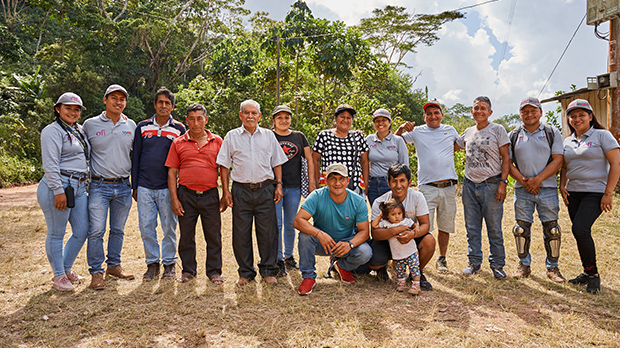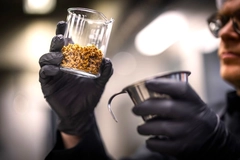
- Industry news
Industry news
- Category news
Category news
- Reports
- Key trends
- Multimedia
- Journal
- Events
- Suppliers
- Home
- Industry news
Industry news
- Category news
Category news
- Reports
- Key trends
- Multimedia
- Events
- Suppliers
15 Feb 2023 --- The United States Agency for International Development (USAID) has launched a new partnership with olam food ingredients (ofi) to promote more sustainable coffee production in Peru.
A joint investment of US$8.1 million will fund extension services, infrastructure, certification and training, designed to improve yields, quality and access to premium markets for 1,000 smallholder farmers.
“The five-year joint investment will be split across different initiatives, with 20% distributed toward targeted extension services, and 80% directed at investments into certification and infrastructure improvement.” Prashant Jalan, country head at Peru ofi’s coffee platform, tells FoodIngredientsFirst.
South America’s largest coffee exporter
Peru is known as the largest exporter of organic coffee, but growth is largely uneven across the country. Jalan flags that 95% of the country’s supply comes from smallholder coffee farmers.

“Peru has an extended coffee growing season, running from March to October, which gives the country a natural competitive advantage over other regions with a shorter growing season,” he explains.
“Peruvian coffee is also notably distinguished from other coffees, renowned for its good acidity, unique chocolate profile and great aroma. Peru's different climate conditions and high altitudes have also made it possible to develop different coffee flavor profiles.”
Despite being the principal crop for smallholder farmers and the natural advantages, in the region of Junín, inadequate access to inputs and a lack of technical and managerial capacity pose significant production constraints.
With combined resources, the partnership aims to develop more inclusive value chains that generate opportunities for 1,000 farmers and their families in Junín. “The number of farmers in Peru is not rising,” according to Jalan, which means it is important for existing farmers to increase the productivity, quality and yield of their current coffee crops in order to be able to access premium markets.
These include increased productivity from training on sustainable and organic farming, GAP (Good Agricultural Practices), and quality testing, as well as improved profitability from training on bookkeeping and better farm management.
It will also enable access to quality and differentiated markets with post-harvest processing workshops and equipment, including solar dryers, composters and wet mills. Moreover, improved health and well-being with medical screenings and nutritional education is set to reduce malnutrition rates and anemia in young children and pregnant women in the country.
 Ofi already works with more than 10,000 coffee smallholders in Peru through sustainability programs.Some of this work is already underway, with the installation of wastewater treatment systems on 250 farms, distribution of 150 solar dryers and farm financial assessments conducted with 100 coffee producers.
Ofi already works with more than 10,000 coffee smallholders in Peru through sustainability programs.Some of this work is already underway, with the installation of wastewater treatment systems on 250 farms, distribution of 150 solar dryers and farm financial assessments conducted with 100 coffee producers.
“In the context of the ongoing climate uncertainty and the pandemic, a traditional crop like coffee now has an even more important role to play in uplifting Peru’s producers,” says Jalan.
Driving up sustainability agendas
Ofi already works with more than 10,000 coffee smallholders in Peru through sustainability programs.
“The investment ofi and USAID are making together in the region, and the training that will be provided, brings opportunities for farmers in Peru to increase their livelihoods while also working to protect the natural environment,” underscores Jalan.
According to Jalan, the partnership with USAID “allows us to upskill more farmers to produce higher quality beans that will qualify for specialty markets, where prices are higher and more stable.”
“We rely on structured collaboration to scale up our impact and for roasters and other customers, it offers an opportunity to engage with partners on the ground to help drive their own sustainability agendas.”
Meanwhile, Jene Thomas, USAID Peru mission director, believes the partnership with ofi will “improve extension services and access to digital technologies for 1,000 Peruvian coffee farmers.”
“It will help smallholder farmers transition from conventional production to organic production, increase productivity and improve product quality. By helping these farmers qualify for organic and sustainable certifications to facilitate their entry into premium markets, the partnership will enable them to remain competitive despite international price volatility, thus increasing their incomes and motivating them to continue to pursue licit livelihoods.”
By Elizabeth Green






.jpg)






